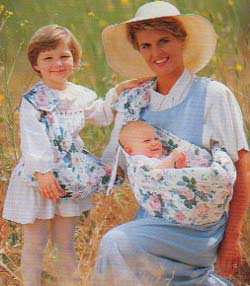While many parents look forward to having a new baby, it’s common for older children to feel shocked when the number one position in the household is taken by a new family member. An initially well-behaved child may suddenly become disobedient, stubborn, and mischievous, refusing to listen.
 |
| Mothers need to foster family feelings in their children (Photo: juliestuff) |
Some children may act unusually, such as yelling in a quiet space, intentionally having accidents, or being messy with their hygiene. These seemingly unconscious actions often express a single desire: to gain the attention of everyone around them and to make them care more about them.
By the age of three, children can observe and remember how their parents interact with them. Before the arrival of a new sibling, they often see themselves as the center of the family, receiving all the affection and attention, and indulging in habits such as “playing with mom,” “nursing,”… Once a new sibling arrives, they no longer have that privilege and can easily feel sidelined. Some children may exhibit unusual behaviors, including biting others, being withdrawn, competing with friends, or waking up in the night crying out: “I need mom, I don’t need the baby!”
To prevent psychological shock in young children, parents should start talking to their child about the future sibling during pregnancy or when preparing for the second child. It’s essential to introduce the idea of family affection, sharing, and support among all family members. Reading stories or telling tales to the child can be effective strategies.
Encouraging the child to sleep in their own bed, or if possible, training them to sleep in their own room is ideal. If the child is not used to this, allowing them to occasionally sleep with their father or grandparents can help them gradually adjust to being away from their mother.
A mother’s sensitivity in her interactions with her children is crucial. Mothers need to allocate specific time for each child. No matter how busy they are, they should not forget to show care, affection, and comfort to the older child. Treating children in this way also teaches them the first lesson about kindness and fairness.




















































